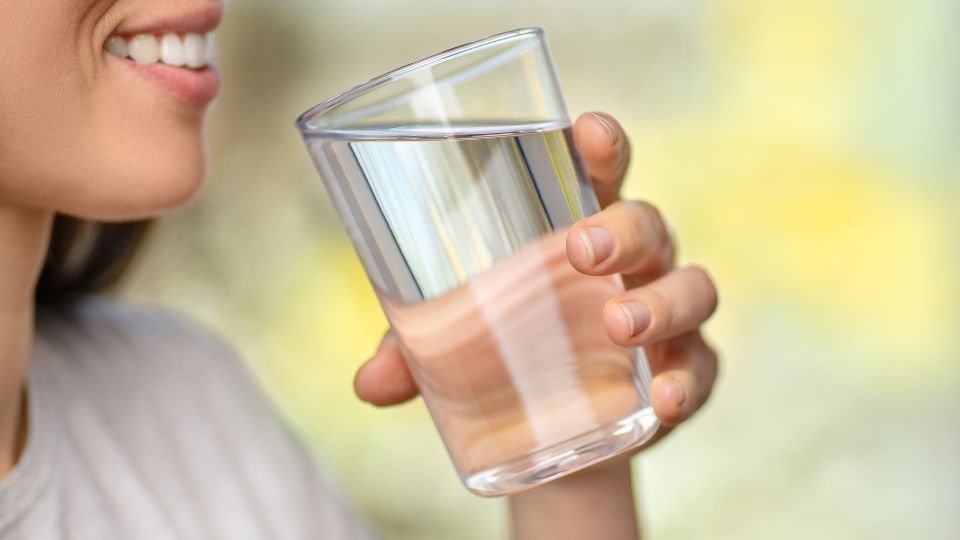
Can Dehydration Cause Joint Pain? How Water Affects Your Comfort
Dehydration is associated with several negative health issues. It can cause thirst, muscle cramps, lightheadedness, and overall discomfort. However, you might be asking “Can dehydration cause joint and muscle pain?”
It turns out, it can lead to chronic conditions with your soft tissues and joints based on the body not getting the nutrients that it needs.
Keep reading to understand the impact that hydration has on your joint health. You’ll also discover the best way to eliminate joint pain due to dehydration.
And keep in mind that the location of your pain matters. Read this post to understand the difference between hip pain and back pain, as well as the significance.
Dehydration And Joint Pain
Your natural bodily systems work properly when you have the right levels of fluid. Ultimately, hydration helps your body send nutrients to the cells. Hydration also helps your organs and tissues stay in good health and remain protected.
Additionally, blood volume and circulation is affected by water. And finally, recovery times are improved when you’re properly hydrated. As you may have noticed, hydration has a significant importance when it comes to your overall health.
So if you aren’t giving your body the fluid resources it needs, then it’s going to be depleted and not be able to function at a peak level. That’s why drinking water throughout the day is so essential.
In terms of the downsides, chronic inflammation is often a result of not being properly hydrated. So avoiding dehydration is crucial so that your body can flush out waste, clean itself, and reduce inflammation and pain.
Does Dehydration Cause Joint Pain?
Dehydration can directly contribute to joint pain. Realize that joints need lubrication. Without enough fluid resources like water, you have less lubrication. Therefore this can lead to pain from cartilage in your joints not getting the water they need.
Synovial fluid is a thick lubrication liquid that cushions your joints and makes sure your bones don’t push against each other. All of your joints have this fluid from your hands to your shoulders to your feet, hips and knees.
When properly hydrated, lubrication, shock absorption and cushioning go as planned. When you don’t have enough hydration, joint pain is usually a consequence.
Is Your Joint Pain Due To Hydration?
Dehydration is one of the potential causes of joint pain. However, just because you’re experiencing joint pain doesn’t mean that dehydration is necessarily the reason. It’s important to consult with a doctor to seek out the root cause of your pain.
Keep in mind that most people can certainly hydrate more than they are right now. So regardless, increasing your hydration levels won’t be harmful.
Other Potential Joint Pain Causes
Here are some other potential causes of joint pain:
- Cancer
- Fibromyalgia
- Infectious diseases
- Bursitis, lupus
- Joint overuse
- Dislocation
- Injury
- Sprains
- Arthritis
- Gout
How To Get More Water In Your Diet
Drinking more water might seem difficult if you don’t particularly enjoy it or if you don’t have time throughout the day. However, here are some tips to make sure you stay hydrated:
- Use a reusable water bottle
- Get a water-tracking app or spreadsheet
- Set a reminder on your phone
- Drink water with every meal
- Take small sips throughout the day instead of chugging
- Make sure a water glass or water bottle is always with you
- Add some sugar-free seasoning or flavoring like a flavor packet, tea, or lemon.
Following these tips can help make sure that you stay hydrated even if it isn’t a regular habit for you already. Keep in mind that you should aim to drink water even before you feel dehydrated.
If you’re thirsty, that means you’re already dehydrated. Other symptoms like joint pain, headaches, or dry mouth can also mean that you’ve been falling behind on your water intake.
Another good time to drink water is when you’re seemingly hungry. Many times when you’re hungry, you’re actually just thirsty because your body is looking for the nutrients within water.
If you notice a yellow urine color, then you can probably start drinking more water right away as well.
Learn About Joint Replacement Surgery In Baltimore, Maryland
The Orthopedic and Spine Institute at Ascension St. Agnes has experts in joint replacement in Baltimore. We can help you with your shoulder, hip, knee, or other joint needs. The compassionate and dedicated specialists provide the utmost care and patient outcomes.
That way you can enjoy increased mobility and lifestyle benefits once again. We’ll consider any appropriate options that don’t require surgery before suggesting an operation. No matter what the best path is for you, you can trust the experts to keep your best interests in mind.